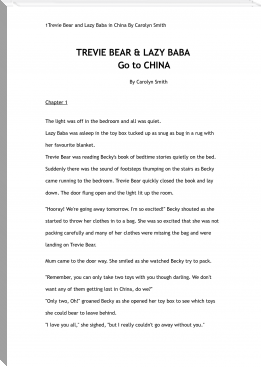Chasing the Sun - Robert Michael Ballantyne (good books to read .txt) 📗

- Author: Robert Michael Ballantyne
Book online «Chasing the Sun - Robert Michael Ballantyne (good books to read .txt) 📗». Author Robert Michael Ballantyne
On the day of their arrival, Fred seized his rod, and taking Hans to gaff the fish and show him the river, sallied forth, accompanied by about a score of natives, chiefly men and boys, who were eager to see the new style of fishing. They soon came to a fine-looking part of the stream, and Fred put together his rod. He was much amused at the looks of the men when they saw the thin supple point of the rod. They shook their heads gravely, and said, "He cannot hold a big fish with that." They were right so far, but they did not understand the use of the reel and the running line. Presently Fred cast, and almost immediately a large salmon took his fly, the rod bent like a hoop, and the reel whizzed furiously as the line ran out.
Sam Sorrel, who was there at the time, afterwards said that he was divided between interest in the movements of the fish, and amusement at the open mouths and staring eyes of the natives.
This fish was a very active one; it dashed up, down, and across the river several times, running out nearly the whole of the line more than once, and compelling Fred to take to the water as deep as his waist. At last, after a fight of half an hour, it was brought close to the bank, and Hans put the gaff-hook cleverly into its side, and hauled it ashore, amid the shouts of the astonished people, for the salmon weighed eighteen pounds.
After a time the natives began to understand the principles of fly-fishing with a rod, and regarded Fred Temple with deep respect. On all his fishing excursions in that fiord, he was attended by a band of eager admirers, to whom he gave most of the fish; for he caught so many of all sizes that his friends and his crew were not able to eat the quarter of them. The catching of his largest salmon was a stirring incident.
It happened on the evening of a very bright day. He had been unfortunate. The sun being too bright, the fish would not rise. This annoyed him much, because on that particular day he had been accompanied by the Captain and Bob Bowie, as well as his two companions, all of whom were anxious to see him catch fish, and learn a lesson in the art. Fred was up to his middle in a rough part of the river. It was all he could do to retain his foothold, the water was so strong.
"It won't do," said he, "the sun is too bright."
His friends on shore looked grave and disappointed.
"I sees a cloud a-comin'," said Bob Bowie glancing upwards.
"Hallo! hey!" shouted Grant, who observed that at that moment Fred's legs had been swept from under him, and he was gone!
Before any one could speak or act, Fred reappeared a little farther down the river, holding tight to the rod, and staggering into shallower water.
"None the worse of it," cried Fred, bursting into a laugh.
Just as he said this, and while he was paying no attention to his rod, a salmon rose and seized the fly. In an instant Fred and his comrades utterly forgot all about the ducking, and were filled with the excitement of the sport.
Fred's rod bent like a willow wand. His eyes seemed to flash, and his lips were tightly pressed together, for he felt that he had on a very large fish. Suddenly it darted up stream, and did what the large fish seldom do--leaped quite out of the water.
"A whale! stand by!" roared Bob Bowie.
There was a cry from the others, for at that moment the salmon set off down stream,--a most dangerous proceeding at all times. Fred made for the bank, and let out line as fast as possible. When he gained the bank he ran down the stream, leaping over bushes and stones like a wild goat. The places he went over in that run were terribly rugged. It seemed a miracle that he escaped without broken bones. Presently he came to a steep rock that projected into the water. There was no getting round it, so in he dashed. It took him only up to the knees. This passed, he came to another place of the same sort. Here he put a strain on the fish, and tried to stop it. But it was not to be stopped. It had clearly made up its mind to go right down to the sea. Fred looked at the pool, hesitated one moment, and then leaped in. It took him up to the neck, and he was carried down by the current fifty yards or so, when his feet caught bottom again, and he managed to raise his rod, fully expecting to find that the salmon had broken off. But it was still on, and lively. Meanwhile, his comrades on the bank were keeping pace with him, shouting and yelling with excitement as they ran.
"The rapid, mind the rapid!" roared Grant.
Fred saw a foaming rapid before him. He became anxious. It was dangerous to venture down this. If he should touch a rock on the way down, the chances were that he would get a limb broken. The banks here were so thickly covered with bushes that it was impossible to pass. The fish still held on its headlong course. "What shall I do?" thought Fred. "If I stop he will break all to pieces, and I shall lose him. Lose him! no, never!"
"Don't venture in, Fred," shrieked Sam Sorrel.
But the advice came too late. Fred was already in the foaming current. In a moment he was swept down into the comparatively still water below the rapid. His friends lost sight of him, for they had to run round through the bushes. When they got to the foot of the rapid, they found Fred on the bank, panting violently, and holding tight to the rod, for the salmon had stopped there, and was now "sulking" at the bottom of a deep hole. For a full hour did the fisher labour to pull him out of that hole in vain; for in this kind of fishing nothing can be done by main force. The great beauty of the art consists in getting the salmon to move, and in humouring his movements, so that you tire him out, and get him gradually close to your side.
At last the fish came out of the deep pool. Then there was another short struggle of quarter of an hour, and the fisher's perseverance and skill were rewarded. The salmon at last turned up its silvery side. Fred drew it slowly to the bank (in breathless anxiety, for many a fish is lost at this point). Hans struck the gaff in neatly, and with a huge effort flung it floundering on the bank, amid the hearty cheers of all present.
This salmon weighed 34 pounds, and was about four feet long! It was a magnificent fish, and it may well be believed that Fred Temple did not grudge the two hours' battle, and the risk that he had run in the catching of it.
CHAPTER TEN.
CONCLUSION.
"Sam Sorrel," said Fred Temple one day to his friend while they were seated at breakfast in the house of a farmer of the Nord Fiord, "we have been here more than a fortnight now; we have enjoyed ourselves much, have had good sport of various kinds, and have laid in a stock of health and wisdom, it is to be hoped, that will last us for some time to come."
"That sounds very much like the beginning of a formal speech," said Grant.
"Hold your tongue, Grant," retorted Temple, "I have not yet done. As I have said, we have been successful in gaining the ends for which we came here. We have seen the sun rise without setting. Sam Sorrel has filled a large portfolio with beautiful sketches of, perhaps, the finest scenery in Europe. Grant has shot and stuffed I am afraid to say how many birds of all kinds, besides making a large collection of rare plants; and Fred Temple has caught about five hundred pounds' weight of salmon--not to mention hundreds of trout--"
"Good," said Sam, "and very correctly stated. You are fit for the House of Commons, my friend."
"Sam, be silent!--Now this being the case, it is time that we should think of returning to our native land. I will, therefore, make arrangements for setting sail in two or three days. But before leaving I will bring to a point a little plot which I have been hatching ever since I landed in Norway. I won't tell you what it is just yet, but I must have your help, Sam."
"Command my services, sir," said Sam, with a wave of his hand. "I am your servant, your Eastern slave, ready, if need be, to prostrate myself in the earth and rub my nose in the dust."
"Good. I accept your offer," said Fred, "and my first command is, that you take your brushes and paint me a Norwegian bride in the course of this forenoon!"
"Why, your orders cannot be obeyed," cried Sam in surprise. "Where am I to find a bride on such short notice? You are more unreasonable than the most tyrannical of sultans."
"Nevertheless," replied Fred calmly, "I issue my commands, and in order to relieve your mind of anxiety, I will find a bride for you."
"Where, then, is this bride, O wizard?" asked Sam with a laugh.
"Behold her!" cried Fred, starting up and throwing open the door, from which could be seen the shore and the fiord with its background of noble hills.
Sam and Grant started up with sudden exclamations, and stared at the object which met their gaze in speechless wonder. And truly there was cause for astonishment; for there, on the shore, close to the water's edge, stood the fair Raneilda, clothed in the gorgeous costume of a Norwegian bride.
"Assuredly you are a wizard," cried Grant, glancing at his friend.
"Not so," replied Fred. "I met sweet Raneilda last night at her father's cottage, and begged of her to come here at a certain hour this morning in the costume of a bride, in order that my friend the artist might paint her. She hesitated and blushed a good deal at first, but at length she agreed, and, as you see, is punctual in keeping her appointment."
Fred now went down to Raneilda, and brought her up to the house; Sam Sorrel at once placed her in a good position, seized his brushes, and began the portrait.
He was delighted with the dress, for it glittered with gold and silver ornaments. The crown was of pure silver covered with gold. The breastplate was red cloth ornamented with silver-gilt brooches, beads of various colours, silver chains, and small, round looking-glasses. There was also a belt ornamented with gold and silver. Altogether Raneilda looked much more like the Queen of Norway than a poor peasant girl!
It





Comments (0)